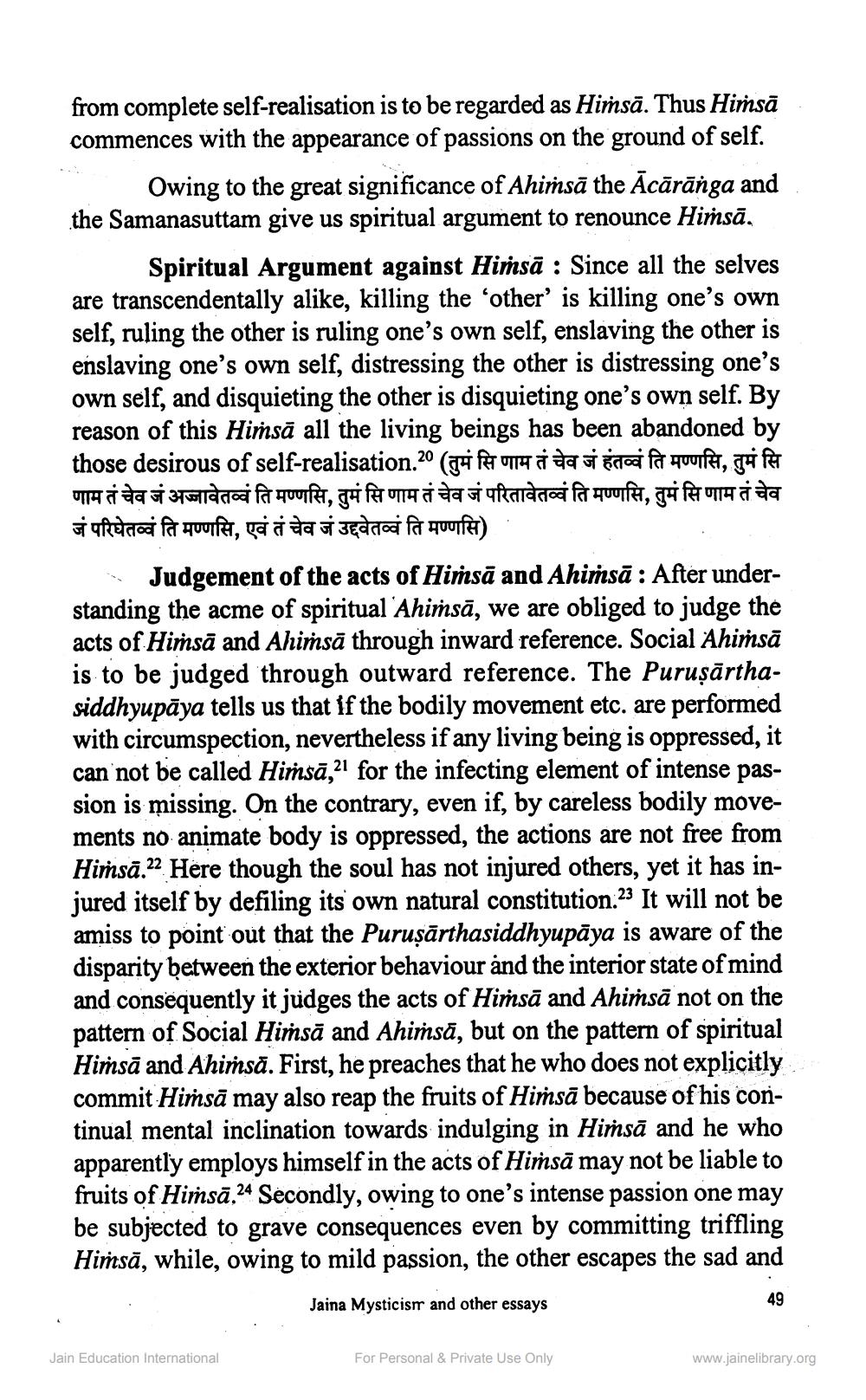________________
from complete self-realisation is to be regarded as Himsā. Thus Hirsā. commences with the appearance of passions on the ground of self.
Owing to the great significance of Ahimsā the Ācārānga and the Samanasuttam give us spiritual argument to renounce Hiṁsā.
Spiritual Argument against Hiṁsā : Since all the selves are transcendentally alike, killing the 'other' is killing one's own self, ruling the other is ruling one's own self, enslaving the other is enslaving one's own self, distressing the other is distressing one's own self, and disquieting the other is disquieting one's own self. By reason of this Himsā all the living beings has been abandoned by those desirous of self-realisation.20 (तुमं सि णाम तं चेव जं हंतव्वं ति मण्णसि, तुमं सि णाम तं चेवजं अज्जावेतव्वं ति मण्णसि, तुमं सि णामतं चेवजं परितावेतव्वं ति मण्णसि, तुमं सिणाम तं चेव जंपरिघेतव्वं ति मण्णसि, एवं तं चेव जं उद्दवेतव्वं ति मण्णसि)
Judgement of the acts of Himsā and Ahiṁsā : After understanding the acme of spiritual Ahimsā, we are obliged to judge the acts of Hirsā and Ahimsā through inward reference. Social Ahirsā is to be judged through outward reference. The Puruşārthasiddhyupāya tells us that if the bodily movement etc. are performed with circumspection, nevertheless if any living being is oppressed, it can not be called Himsā,21 for the infecting element of intense passion is missing. On the contrary, even if, by careless bodily movements no animate body is oppressed, the actions are not free from Himsā.22 Here though the soul has not injured others, yet it has injured itself by defiling its own natural constitution:23 It will not be amiss to point out that the Puruşārthasiddhyupāya is aware of the disparity between the exterior behaviour and the interior state of mind and consequently it judges the acts of Himsā and Ahiṁsā not on the pattern of Social Hiṁsā and Ahimsā, but on the pattern of spiritual Hiṁsā and Ahimsā. First, he preaches that he who does not explicitly commit Hiṁsā may also reap the fruits of Himsā because of his continual mental inclination towards indulging in Himsā and he who apparently employs himself in the acts of Hiṁsā may not be liable to fruits of Himsā,24 Secondly, owing to one's intense passion one may be subjected to grave consequences even by committing triffling Hiṁsā, while, owing to mild passion, the other escapes the sad and
Jaina Mysticism and other essays
Jain Education International
For Personal & Private Use Only
www.jainelibrary.org




